About Alpha Dune Airdrop
Alpha Dune Airdrop is the governance hub that manages their entire ecosystem of projects. With Alphadune their aim is to build a more unified and integrated Web3 environment and offer broad utility and interoperability across projects.
Alpha Dune is giving away a total of $1,000 worth of STR tokens (Stater) to users who complete simple giveaway tasks. Sign up for the giveaway and complete simple tasks to earn entries. Also earn more entries for each referral. Users who complete at least 100 entries will get a chance to win the rewards. A total of 10 participants will be selected in which they would win up to $500 worth of STR tokens and free mints to Houndrace.
| Basic | Details |
|---|---|
| Token Name | Alpha Dune Airdrop |
| Platform | ETH |
| Airdrop End | 2022-08-05 |
| Support | 24/7 |
| KYC | KYC Is Not Requirement |
| Whitepaper | Click Here To View |
| Max. Participants | Unlimited |
| Collect Airdrop | Click Here To Collect Free Airdrop |
Step-by-Step Guide:
- Visit the Alpha Dune giveaway page.
- Submit your details and sign up.
- Now complete simple tasks to earn entries.
- Also earn more entires for each referral.
- You need to get at least 100 entries to be eligible for the giveaway.
- A total of 10 participants will be selected in which they could win up to $500 worth of STR tokens and free mints to Houndrace.
Alpha Dune DAO
Alpha Dune DAO exists because decentralized governance represents an important step in building and managing a global community.
The Alpha Governance Proposal process will allow Alpha Dune DAO members to make decisions and shape the future of our ecosystem by using the Governance Fund allocations to build new set of features that will impact the development of our projects across all areas. Alpha Dune DAO is open to all Alpha Dune holders.
Membership
Participating in submissions of ideas, proposals and voting is available only to Alpha Dune DAO members. Holding DUNE tokens is the only requirement for membership in the DAO
Communication Channels
Commonwealth is the first stop for all proposals. An ADP (Alpha Dune Proposal) Idea is submitted as a post in Commonwealth and must receive confirmation from a moderator that it complies with DAO-approved rules before it appears to the community. Alpha Dune holders must go through a wallet authentication process to post ideas or give feedback to ideas via comments.
Snapshot is used for voting. Proposal drafts that have passed their respective approval processes become available for voting on Snapshot. Alpha Dune holders must go through a wallet authentication process to vote.
Proposal Process
There are four main categories an ADP (Alpha Dune Proposal) can fall under: Core, Process, Informational and Ecosystem Fund Allocation.
Core Proposals – Proposals for making decisions on technical product features, design improvements or partnerships.
Core proposals have two main subcategories:
- Product Development – Everything related to a technical implementation fall here: Feature development, smart contract, UI/UX improvement.
- Brand Decisions – Proposals related to partnerships, contests and other brand decisions.
Process Proposals – Proposals for making a change to a process or implementation. Examples include procedures, guidelines, changes to the decision-making process, and changes to the tools or environment of the DAO.
Informational Proposals – Proposals for general guidelines or information for the community.
Ecosystem Fund Allocation – Proposals for how DAO funds should be utilised.
A proposal typically includes:
- Abstract – Two or three sentences that summarize the proposal.
- Motivation – A statement on why the Alpha Dune community should implement the proposal.
- Rationale – An explanation of how the proposal aligns with the Alpha Dune Community’s mission and guiding values.
- Specifications – A detailed breakdown of the technologies that will be used.
- Steps to Implement – A breakdown for each step necessary for implementation and information regarding resources for each step where applicable.
- Timeline – Relevant timing details, including but not limited to start date, milestones, and completion dates.
- Overall Cost – The total cost to implement the proposal.
Proposal Steps
Step 1: ADP Idea
An ADP idea is created as a post in our forums and must be approved by one of our moderators with a confirmation that it complies with the DAO-approved guidelines before it appears to the community. The party submitting the ADP idea will be referred to as the Initiator or Initiators (multiple members can work together on an ADP intention). The ADP idea informally gathers comments in the forum thread for 14 days. The initiator cannot edit the original post – if the initiator wants to propose changes to the original intention, he must do this via the comments.
Step 2: ADP Draft
After the 14 days feedback window has passed and the moderator closes the topic, one of our moderators will send the initiator the proposal template and the next steps for submission and voting. They can also create a proposal category if necessary.
The initiator will fill out the template and can add additional information if necessary to better communicate the scope of the ADP draft. The moderator may also inform the author of incorrect or missing information that needs to be changed. If the initiator does not respond to those requests within 14 days, the ADP draft will be automatically rejected.
When the admin confirms that an ADP Draft complies with the DAO-approved guidelines, they assign a number to the ADP for identification purposes.
Step 3: ADP Review
The ADP is reviewed by a project manager from team that is engaged with the Alpha Dune DAO who will provide a report that will breakdown and review the costs, implementation steps, legal considerations, potential conflicts of interests and any further implications that have been identified.
Given that ADP initiators can create drafts with little to no resources, this layer ensures that the DAO community has enough information about the proposals in order to make the best decisions when voting.
The ADP Draft is reviewed by a team of moderators and either approved or not approved based on wether it adheres to the guidelines. If not approved, it is eligible for resubmission after 60 days have passed since the initial submission, except in cases of violation of the law or reasonable suspicion of fraud or other misleading information.
Step 4: Pending ADP
Pending ADPs that have passed ADP Review are tagged as “Ready for Vote”.
The “Ready to Vote” tag is given to a pending ADP whose costs, content, and implications are considered straightforward and of no risk to the well-being of the DAO.
Step 5: Live ADP
Pending ADPs that have passed their respective approval processes will become Live ADPs on Snapshot during the next Weekly ADP Release, which is when new ADPs are released in batched. Once live on Snapshot, live ADPs are open to voting until the vote closes. Moderators are the only ones that can post ADPs to snapshot because they must confirm that each one has gone through the correct approval process.
Step 6: ADP Vote
At this step, the ADP will be available in Snapshot for community voting. All Alpha Dune token holders will be able to participate in the voting process.
If a Live ADP has not gotten the necessary votes, it will be tagged as “Rejected” and be eligible for resubmission in 90 days after the vote has passed. Rejected ADPs can be resubmitted via the standard process if the author contacts a moderator.
Accepted ADPs that have passed the vote will move into implementation.
Step 6: ADP Implementation
For accepted ADPs that passed the voting phase, implementation will begin based on the steps outlined in the ADP template. The project management team engaged by the Alpha Dune DAO is responsible for making sure this happens, but is not responsible for doing it themselves.
Proposal Conflicts
If a suggested proposal directly conflicts with a proposal that is currently up for vote, the second proposal should not go for a vote until a decision is made on the first proposal to avoid approval of opposing requirements.
A suggested proposal that directly conflicts with another approved proposal cannot go to vote for 90 days after the original proposal has been implemented to avoid wasting community assets.






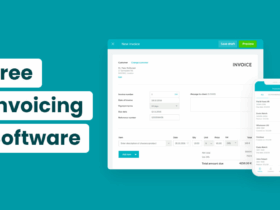






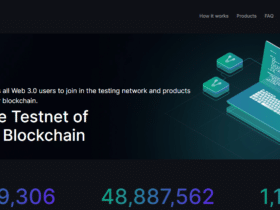


















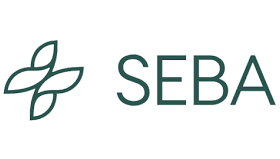

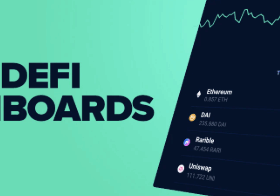




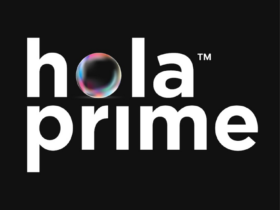

Leave a Reply